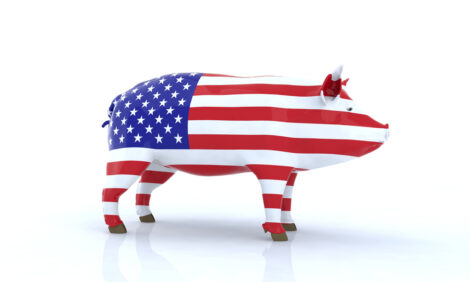



China's secretive commodity reserves - a peek inside
Metal, coal, grain and pork top the list of items in reserve, and for the first time in a decade, China has released some of its reserves.According to Reuters, China is the world's largest user of commodities and has built up vast reserves. The following are details of key commodities and estimates and assessments of strategic reserve levels:
Grains and meat
China's grain reserves are sufficient to feed its 1.4 billion citizens, with the storage capacity exceeding 650 million tonnes, Xinhua reported in April, but did not specify how long the reserves could feed the population.
Grains stockpiler Sinograin will start building 120 storage facility projects, totalling 10.85 million tonnes of capacity, official media reported in July.
Stocks of rice and wheat are enough to meet more than one year of the country's consumption, Liang Yan, deputy head of the reserves administration, told a news conference in April.
Wheat and rice make up about 70% of China's state grain reserves, which are held both centrally and at local levels, state TV reported in August 2020.
The country's meat reserves held almost 1 million tonnes of pork by 2019, according to a South China Morning Post report at the time citing an analyst.
Pork needs to be regularly rotated to ensure it does not spoil.
China's state corn reserves were estimated at around 200 million tonnes in 2017, according to market consensus, and have been whittled down to almost zero by 2020 as the agency sold off ageing grain.
Beijing sold more than 56 million tonnes of corn from its reserves in 2020, according to Reuters calculations, based on statements released on the website of the National Grain Trade Centre.
China stepped up imports of pork for its reserves after African swine fever reached the country in August 2018 and wiped out 50% of the country's pigs within a year.
State-owned Cofco's meat division said in 2019 it was more than doubling the amount it would spend annually on procuring meat for the central reserves to a maximum of 1.48 billion yuan ($228.6 million) in 2020 and 2021.
That would buy about 115,000 tonnes, based on a cost of around $2,000 per tonne for imported pork, according to Reuters calculations.
Click here to read more about China's metals and energy reserves.
($1=6.4752 yuan)









